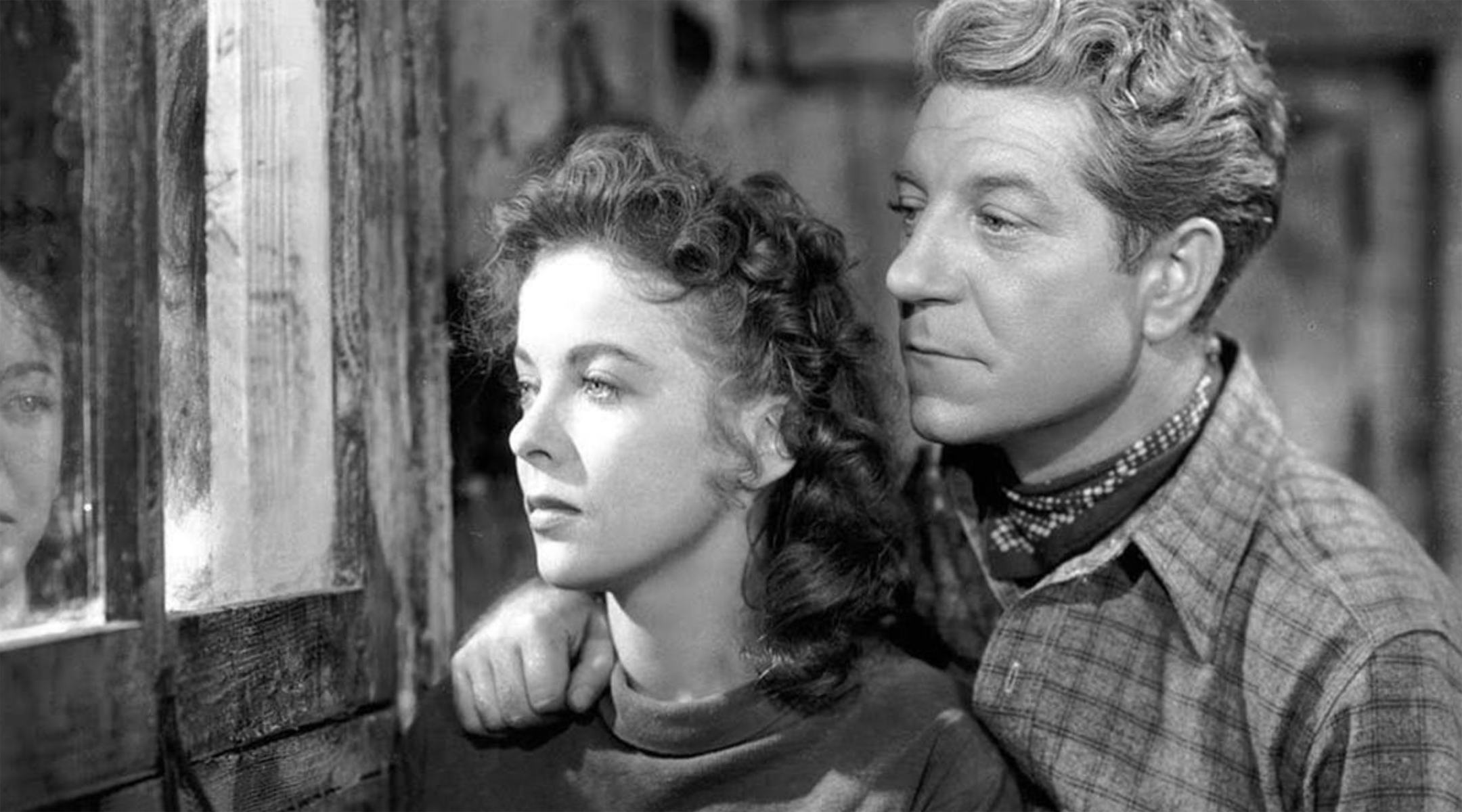

|
 zur Startseite der Filmchronik |
BEMERKENSWERTE FILME AUS DEM JAHRE 1942 Moontide |
|
|
|
||
|
Darsteller |
Handlung |
Kommentare |
|
|
 |
|
Produktion: Regie: Produzent: Drehbuch: Kamera: Schnitt: Musik: Herkunftsland: Genre: Schwarzweißfilm |
Twentieth Century-Fox Archie Mayo Produzent: Hal B. Wallis John O’Hara, nach einer Novelle von Willard Robertson Charles G. Clarke (Oscar-Nomination 1943) William Reynolds David Buttolph USA Drama 94 Minuten |
|
|
|
|
| zum Seitenkopf |
|
|
|
|
| zum Seitenkopf |
|
|
|
KOMMENTARE «But all of them need much more than a vague and irresolute script, much more than synthetic scenery and manufactured moods. Director Archie Mayo hasn’t brought them into contact with real life. He has expended most of his energy in bringing the audience into contact with Mr. Gabin. And Moontide is too heavy a burden to be carried entirely by him, even though he is Charles Boyer from the other side of the railroad tracks.» --- Bosley Crowther, The New York Times, 30.04.1942 «Ida Lupino, das ‘Oh, leave me alone, will you’-Girl, liefert eine genuine Schauspielleistung und verzichtet dabei weitgehend auf ihre neurotischen Qualitäten, auf die sie sonst zurückgreift. Anstatt mit quirliger Anspannung zu spielen, macht sie Anna gewöhnlich und liebenswürdig, so, dass ich, seit Elisabeth Bergner die Rolle der Gemma Jones in Escape Me Never gespielt hat, nie wieder solche Wärme gesehen habe.» --- Manny Farber, The New Republic, 11.05.1942 «Nothing quite so outstanding as "Gone With the Wind" has happened to the cinema since then, no more recent landmark has been erected along the path of the photoplay’s progress. Up until now, that is. It seems quite likely, however, that future historians of this particular art will find themselves called upon to list among the major achievements of Hollywood the luring of M. Jean Gabin to the West Coast studios. M. Gabin is that stocky, blond and far-from-beautiful chap who once was known as the "Spencer Tracy of France", when the French had time to send us a gem of a motion picture every now and then. It is safe to predict now that the wider audience which will see M. Gabin in domestic films soon will breed a new legion of fans, who will join the rugged star’s past admirers in understanding just why Spencer Tracy, when he heard about that above title, said, not Just politely or with any false modesty, but from the heart, "I’d certainly like to be known as the Jean Gabin of the United States." You will find in "Moontide," his first Hollywood photoplay, which opened yesterday at Loew’s Capitol, that M. Gabin is a sort of Tracy type, at that, if he is anything other than a Jean Gabin type. He’s a man’s man, the sort of a guy who makes it easy for wifie to lure her husband away from his slippers and easy chair to go to the movies. And he seems to be a woman’s man; at any rate the point in "Moontide", where he finally drops his reserve to clamp Ida Lupino in sudden and fiery embrace, aroused from yester day afternoon’s audience a chorus of gasping, startled squeals of feminine delight the like of which hasn’t been heard in years. The story which has been chosen as M. Gabin’s vehicle for his Holly wood debut really is one well-suited to his talents, though some of his past admirers may find it a bit too true of tears and smile that passes for a picture of life, in "Moontide". Or perhaps, with its assorted waterfront characters, who bound in and out of a juke joint called the RED DOT, the film presents more of a Saroyanesque, rather than a natural, version of life, though it possibly would give John O’Hara, who wrote the screenplay, serious internal quivers and spots before the eyes if he believed that. Mr. O’Hara and Archie Mayo, who directed the picture, have done a top-notch job, at any rate, and one which makes it unfair to go into any further detail than the report that "Moontide" is the story of a dock worker named Bobo, who plucks j a girl named Anna out of the Pacific and falls in love with her on a live bait barge. It’s a boy-meets-girl romance, with its share of drama and of comedy, almost pleasantly light-hearted, but for an undertone of foreboding, a threat of tragedy waiting to be unleased, that lurks ever in the background, noticed only subconsciously, except when it lets up, like the thrum of a bass fiddle in a dance orchestra. Twentieth Century-Pox has not stinted, either, in the business of providing M. Gabin with, not a supporting, but a surrounding cast. Such players as Miss Lupino, who is a lady of only semi-darkness and some light this time; Thomas Mitchell and Claude Rains provide any star with competition, not support. Mr. Mitchell’s portrait of the self-styled pal who rides Bobo like a leech of doom, and Mr. Rains’ characterization of a wise and kindly water-front scholar are works of art, no less. And Miss Lupino does nothing that does not further the impression that she is one of Hollywood’s more capable young ladies.» --- Harry MacArthur, Evening star, 10.07.1942 |
|
zum Seitenkopf |